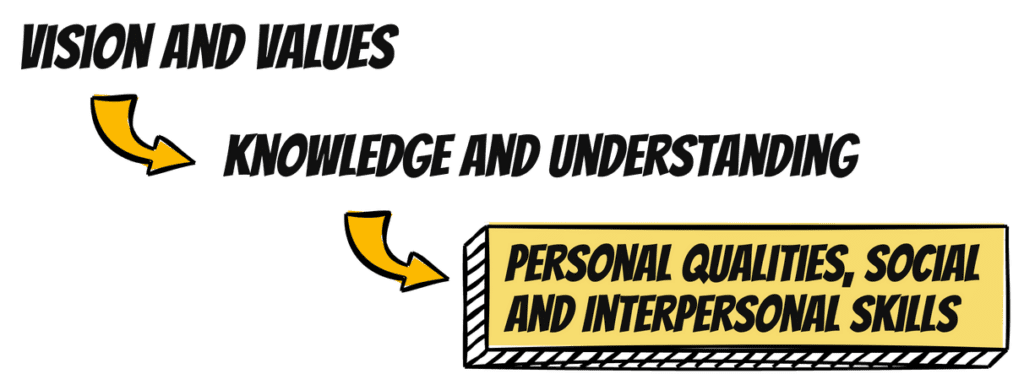The fabric of effective school leadership is woven with emotional intelligence, empathy, resilience, and personal well-being. Principals are more than administrators; they are catalysts for positive change, relying on their personal qualities and social skills to foster an environment of growth and learning. This article dives into the Leadership Requirement of Personal Qualities, Social, and Interpersonal Skills, revealing how these attributes shape impactful school leadership.

What does it entail?
This Leadership Requirement acknowledges the profound influence of personal qualities and social skills in the leadership and management of schools. Principals are encouraged to cultivate emotional intelligence, empathy, resilience, and well-being to create a positive and supportive learning atmosphere for students, staff, and the community.
Leading with these qualities involves continuous self-review, adapting leadership approaches based on the situation, and using ethical practices to manage conflicts. Principals build trust within the school community, fostering strong relationships that enhance collaboration, communication, and advocacy.
How does it shape leadership?
- Emotional Intelligence in Action: Principals leverage emotional intelligence to navigate complex situations, making decisions that benefit students and staff. They understand the power of empathy in forging connections and promoting a positive school culture.
- Effective Communication: With exceptional communication skills, principals adeptly listen, negotiate, and collaborate. They foster open dialogue, respond clearly, and engage in effective feedback exchange.
- Resilience and Conflict Management: Principals’ resilience empowers them to handle challenges with poise, seeking solutions in collaboration with others. They use social skills to manage conflicts ethically, maintaining a harmonious school environment.
What evidence can be demonstrated?
To exhibit their proficiency in Personal Qualities, Social, and Interpersonal Skills, principals can provide the following evidence:
- Conflict Resolution Examples: Showcase instances where you’ve effectively managed conflicts, illustrating the use of ethical practices and social skills to promote resolution.
- Communication Samples: Present samples of your clear communication, negotiation, and collaboration efforts within the school community and beyond.
- Feedback and Coaching Instances: Highlight cases where you’ve provided feedback to staff and students or acted as a coach, fostering growth and development.
- Community Engagement: Document instances where you’ve engaged with the broader community, illustrating how your interpersonal skills have built trust and advocacy.
- Adaptive Leadership Approaches: Share examples of situations where you’ve adapted your leadership style to suit the context, demonstrating your commitment to positive change.
By integrating Personal Qualities, Social, and Interpersonal Skills with other Leadership Requirements and Professional Practices, principals cultivate a comprehensive leadership approach. Through their effective leadership, they nurture a culture of trust, collaboration, and growth that leaves a lasting impact on students, staff, and the entire school community.




